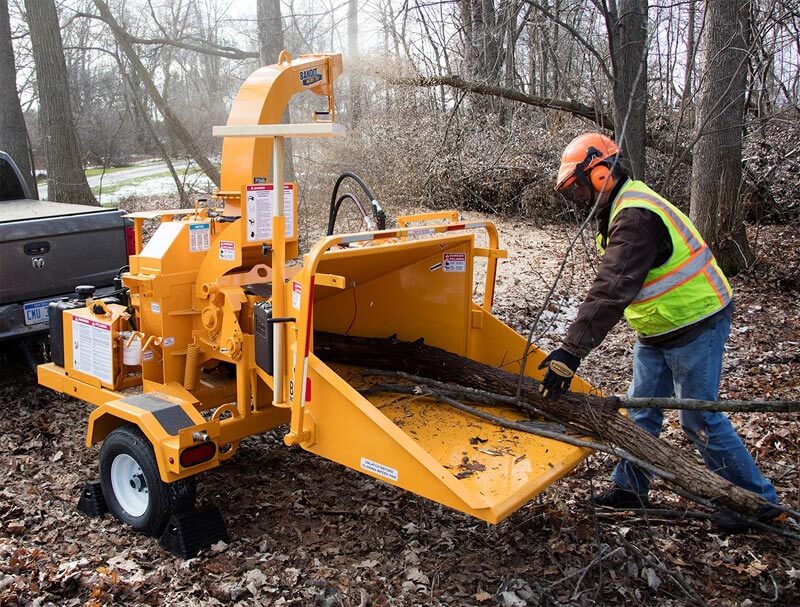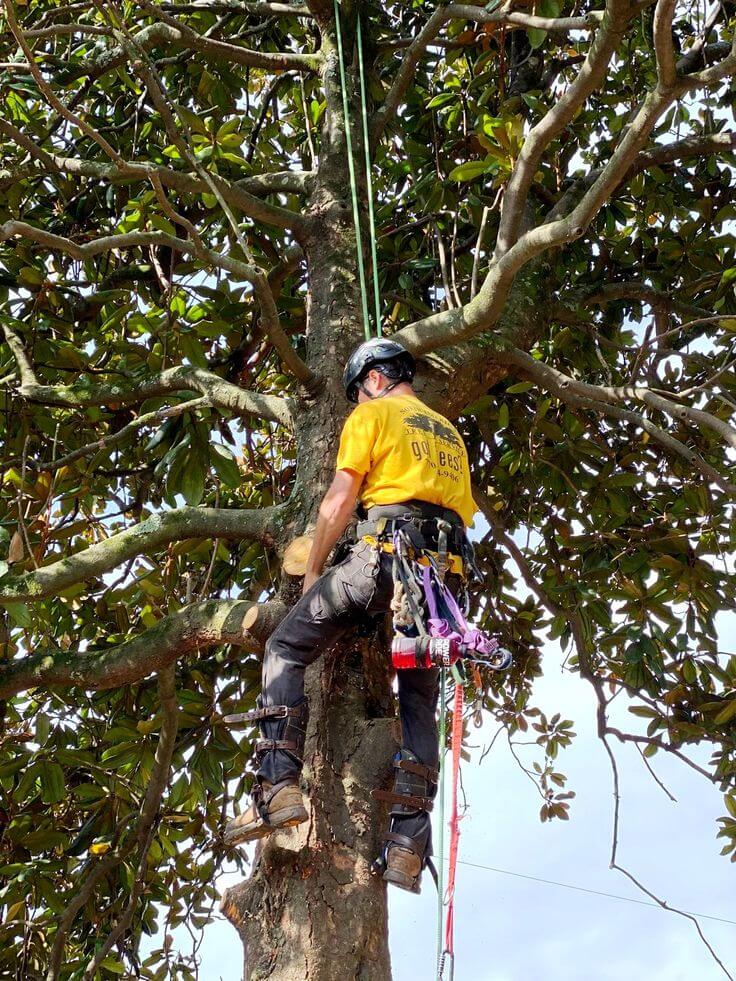Wood Chipper Rental – The Ultimate Guide
Introduction to Wood Chippers
Wood chippers are incredible machines that make yard work and landscaping projects much more manageable. If you’ve ever faced the daunting task of clearing branches, trimming hedges, or managing fallen trees, you know how challenging it can be to dispose of the debris. Renting a wood chipper can save you time, effort, and even money compared to other disposal methods.
A wood chipper is a mechanical device designed to reduce wood material into smaller, manageable pieces such as chips or mulch. These machines come in various sizes, ranging from compact models for light yard work to industrial-grade units for large-scale forestry jobs.
Why Rent a Wood Chipper Instead of Buying?
For many homeowners and small businesses, buying a wood chipper may not be practical. Here’s why renting often makes more sense:
- Cost-Effective: Avoid the upfront expense of purchasing equipment.
- Convenience: Use it only when needed without worrying about storage.
- Flexibility: Try different models for specific projects.
Renting offers an ideal solution for those who need the machine for a short-term project or occasional use.
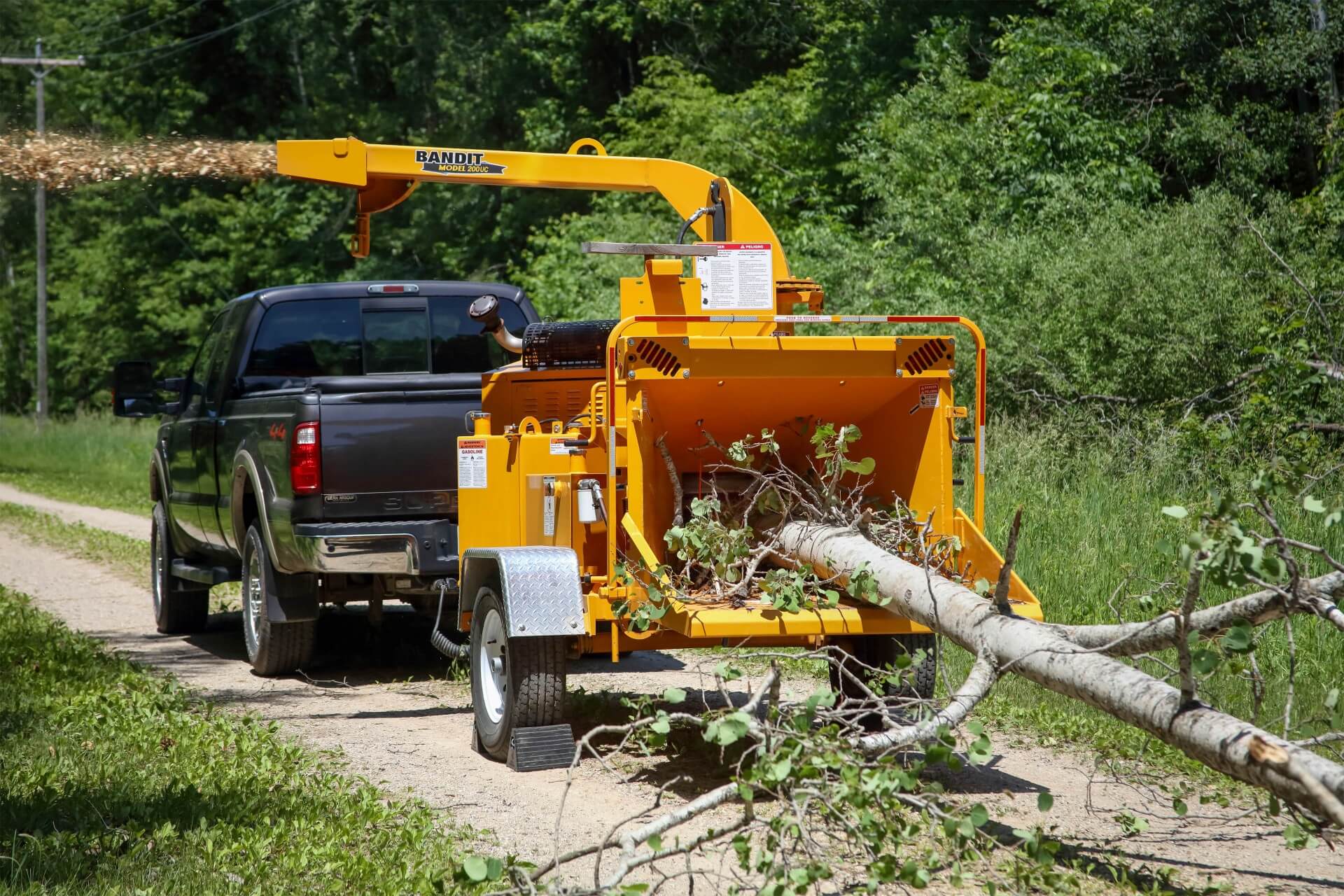
Key Benefits of Renting a Wood Chipper
- Affordable Waste Management: Save on hauling and disposal fees by chipping wood on-site.
- Eco-Friendly Solution: Turn debris into mulch or compost, reducing landfill waste.
- Time Saver: Quickly process large quantities of wood, freeing up time for other tasks.
Types of Wood Chippers Available for Rent
Choosing the right type of wood chipper is crucial for a successful project. Not all chippers are created equal, and each type has its strengths and limitations.
Gas-Powered vs. Electric Wood Chippers
- Gas-Powered Chippers: These are more powerful and ideal for heavy-duty tasks, but they are noisier and require regular fueling.
- Electric Chippers: Suitable for smaller jobs, these are quieter and more eco-friendly but may not handle thicker branches.
Drum Chippers vs. Disc Chippers
- Drum Chippers: Use rotating drums to chop wood and are better suited for high-capacity jobs.
- Disc Chippers: Feature spinning discs for precise cuts and are commonly used for landscaping projects.
Portable vs. Towable Wood Chippers
- Portable Chippers: Lightweight and easy to move, perfect for small yards.
- Towable Chippers: Attach to vehicles, making them ideal for larger or remote jobs.
Factors to Consider When Renting a Wood Chipper
Selecting the right chipper involves more than just picking the first one available. Consider these factors to ensure you get the best match for your project.
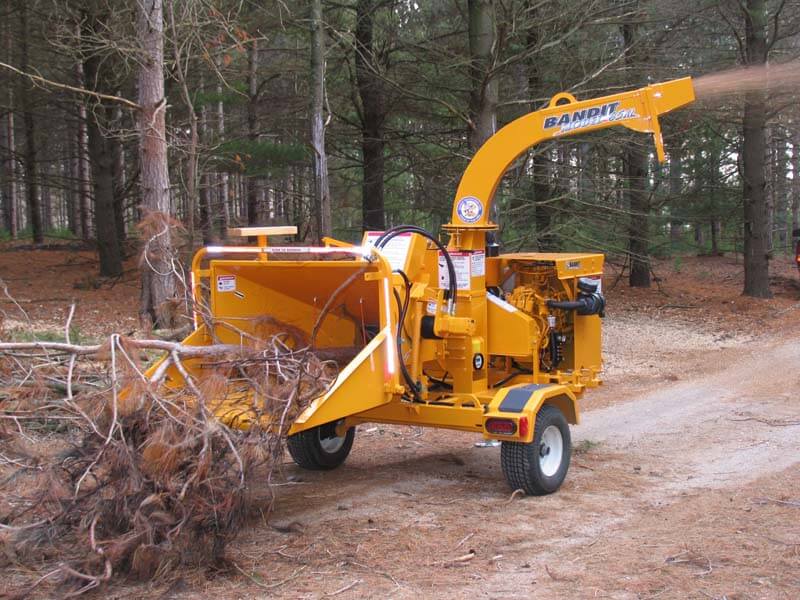
Size and Capacity
What size branches or tree trunks will you be chipping? Different models can handle varying diameters. Always choose a chipper with a capacity slightly larger than your largest branch to avoid overloading.
Engine Power and Efficiency
The engine’s power determines how efficiently the chipper processes wood. For tougher tasks like hardwood or thick branches, a high-horsepower engine is essential.
Noise Levels
Keep noise levels in mind, especially if you’re working in a residential area. Some machines have noise-reduction features or operate more quietly.
Rental Duration and Cost
Determine how long you’ll need the chipper to avoid overpaying. The majority of rental providers typically charge by the day, week, or month. Compare these options to find the most cost-effective plan.
Safety Features
Safety is critical when operating heavy machinery. Look for features like an automatic shut-off, emergency stop button, and protective guards.
Cost by Type of Chipper
- Small Electric Models: $50–$100 per day.
- Mid-Sized Gas Models: $100–$200 per day.
- Towable Commercial Models: $300–$500 per day.
Cost by Duration (Daily, Weekly, Monthly Rates)
- Daily Rates: Ideal for quick jobs.
- Weekly Rates: Cost-effective for extended projects, averaging $300–$1,000.
- Monthly Rates: Great for recurring use, with prices ranging from $1,000–$3,000.
Hidden Fees to Watch For
- Delivery Fees: If you need the chipper delivered, expect to pay extra.
- Cleaning Fees: Return the machine clean to avoid penalties.
- Damage Waivers: These may add to the cost but can save you in case of accidental damage.
Preparing for Your Wood Chipper Rental
Preparation ensures you get the most out of your rental experience.
Documents and ID Requirements
Most rental companies require:
- A valid driver’s license or government-issued ID.
- A credit card for deposit and payment.
- Proof of insurance for towable models.
Tips for Transporting the Chipper Safely
- Use a vehicle with sufficient towing capacity for larger models.
- Secure the chipper with proper straps to prevent movement during transport.
- Ensure all lights and signals on the towable chipper are functioning.
Pre-Rental Inspection Checklist
Before signing the rental agreement:
- Inspect the chipper for visible damage or wear.
- Test all controls to ensure they’re functional.
- Verify that safety features like emergency stops are in working order.
How to Operate a Rented Wood Chipper Safely
Wood chippers are powerful machines, and safety should always be a top priority.
Reading the Instruction Manual
Even if you’ve used a wood chipper before, each model operates differently. Take time to review the manual provided by the rental company.
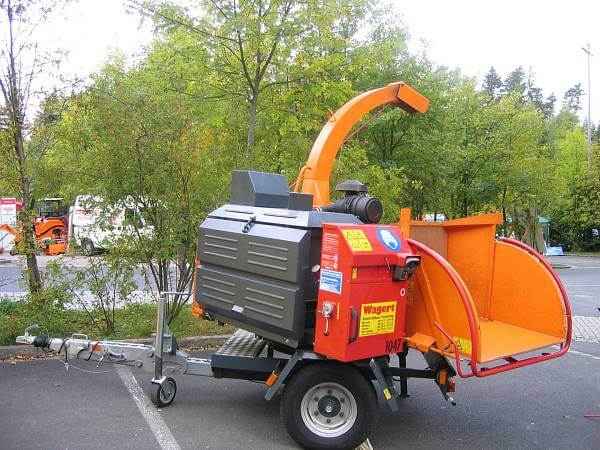
Essential Safety Gear
Equip yourself with:
- Safety goggles to protect your eyes.
- Heavy-duty gloves for hand protection.
- Ear protection, especially for gas-powered models.
- Steel-toed boots for foot safety.
Dos and Don’ts While Using a Wood Chipper
- Do: Feed wood slowly to avoid jamming.
- Do: Keep children and pets away from the work area.
- Don’t: Wear loose clothing or jewelry that could get caught.
- Don’t: Attempt to chip materials the machine isn’t designed for, such as rocks or metal.
Maintaining a Wood Chipper During the Rental Period
Proper care of the chipper ensures smooth operation and helps you avoid penalties.
Cleaning and Maintenance Tips
- Remove debris from the chipper after each use.
- Clean the hopper and blades with a brush or compressed air.
